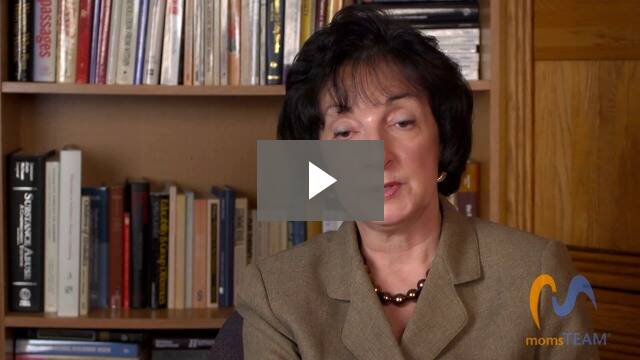The best way to develop a plan to address the academic accommodations a student-athlete will likely need as he or she recovers from a concussion is for your child's school to consult with a neuropsychologist. Neuropsychologists:
- Are trained in understanding brain-behavior functions;
- Know how to interpret the results of neurocognitive testing;
- Understand the effects on test performance of pre-existing neurological conditions (learning disabilities, attention deficit disorder, ADHD) and other extraneous factors; and
- Are sensitive to the emotional component of concussion and how emotions affect academic performance and the quality of life.
Recovery Phases
A student-athlete's cognitive function after concussion has two or sometimes three phases depending on the severity of concussion:
1. Acute Phase: In the initial period after your child sustains a concussion and is still experiencing post-concussion symptoms (which in youth is often longer than one week), it is very important that he not only get as much sleep as possible and limit physical exertion in activities of daily living, but limit scholastic and other cognitive activities (such as reading, studying and visual processing) to allow the brain time to heal and restore its biochemical balance.
True cognitive rest means:
- No text messaging
- No video games,
- No computer use
- No school or homework
- No reading
- No parties, dances, trips, attending games, visiting friends
- No TV, or limited to very short period of non-visually stressful/intense programming.
2. Recovery Phase: Once an athlete feels physical improvement (such as their headaches subsiding) and his or her post-concussion neurocognitive test scores have improved, he or she can be allowed to gradually return to a full academic day and phased back into normal activities.[1]
Academic accommodations, however, may be required, because the concussion may still affect their thinking, attention and focus, memory and learning, and speed of mental processing, all of which interfere with school performance.

It is not uncommon for grades to slip as the student cannot keep up with the pace of the school work. As a result, the concussed athlete should:
- Start with partial school days and then transition to full days, with rest breaks;
- Start with no note-taking, school work/tests/computers, and then transition to extended time and slow pace for assignments and tests.
- Be excused from gym until cleared to begin exercising. Clearance for exercise occurs when the student feels symptom-free, his or her neurocognitive scores are back to baseline or better than baseline, and he or she passes physical exertional testing (most often conducted by a certified athletic trainer).
3. Chronic Phase
In some cases, a student-athlete may experience more long-lasting (e.g. chronic) problems with cognitive function and physical/emotional/sleep symptoms, which may require consideration of one or more of the following academic accommodations:
- A so-called "504 Plan" (e.g. an individualized education plan or IEP)
- Home schooling; or
- Medical leave of absence.
Education Planning
- Minimize make-up work. Devise a plan for each subject that minimizes any make-up work to that which is absolutely essential for the student to complete.
- Do not rush the student to make up missed assignments. It is unreasonable to expect a student who is recovering from a brain injury to not only keep up with the regular school load, but to also make up for all assignments missed. Accommodate by requiring make up only of what is necessary for the student to learn.
- Factor in what already learned. The plan for the student should consider what knowledge he or she has already acquired.
- Allow oral examinations.
- Consider make-up classes or tutoring. If the student has fallen considerably behind, consider make up classes and/or individual tutoring to complete requirements during school or summer breaks.
Remember: the point of education is to educate your child and help them master skills, not to burden them with unreasonable expectations.

1. Halstead ME, et al. Clinical Report - Returning to Learning Following a Concussion. Pediatrics doi:10.1542/peds.2013-2867 (epub October 27, 2013).
Posted July 14, 2011; updated October 27, 2013








